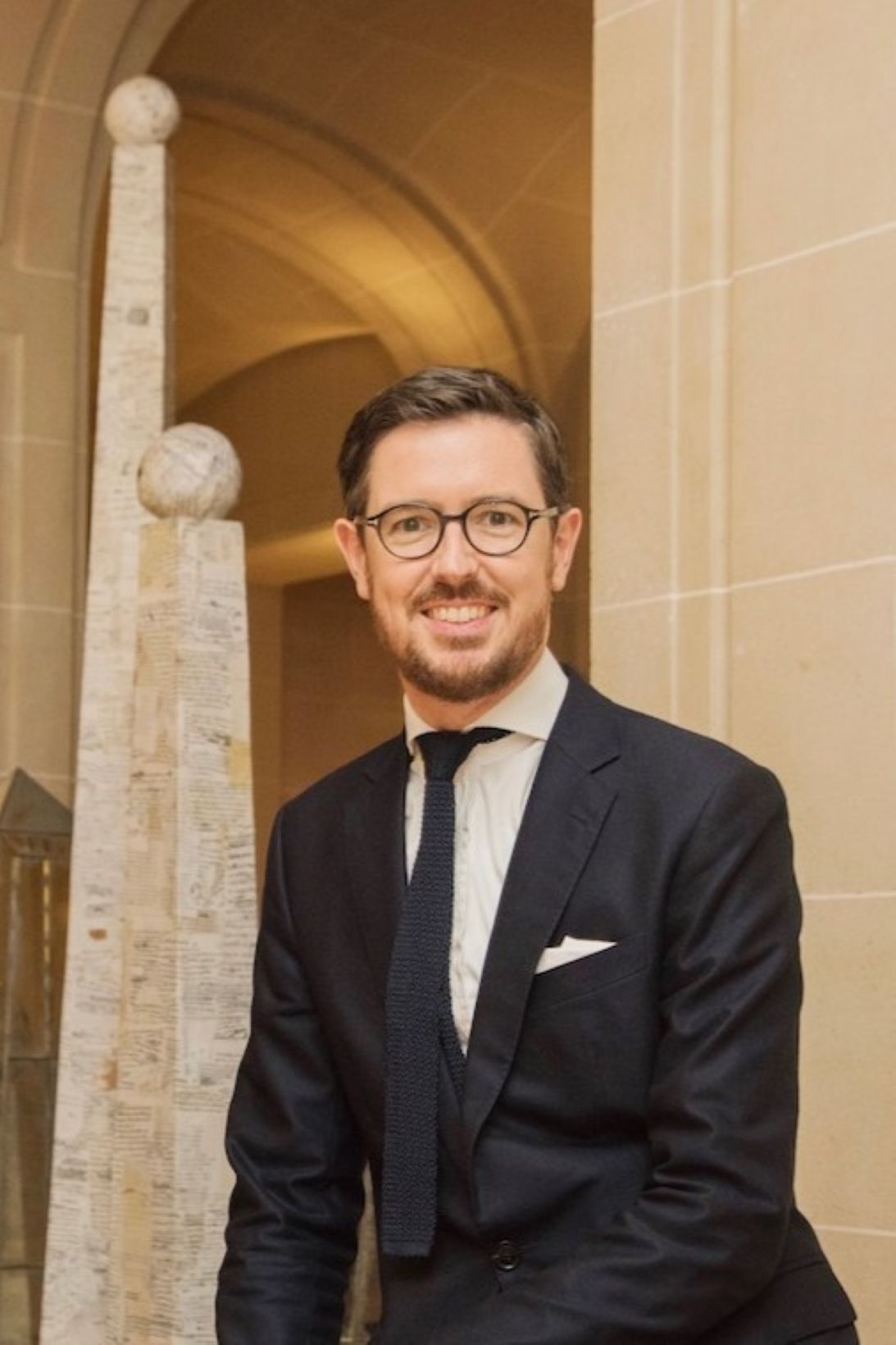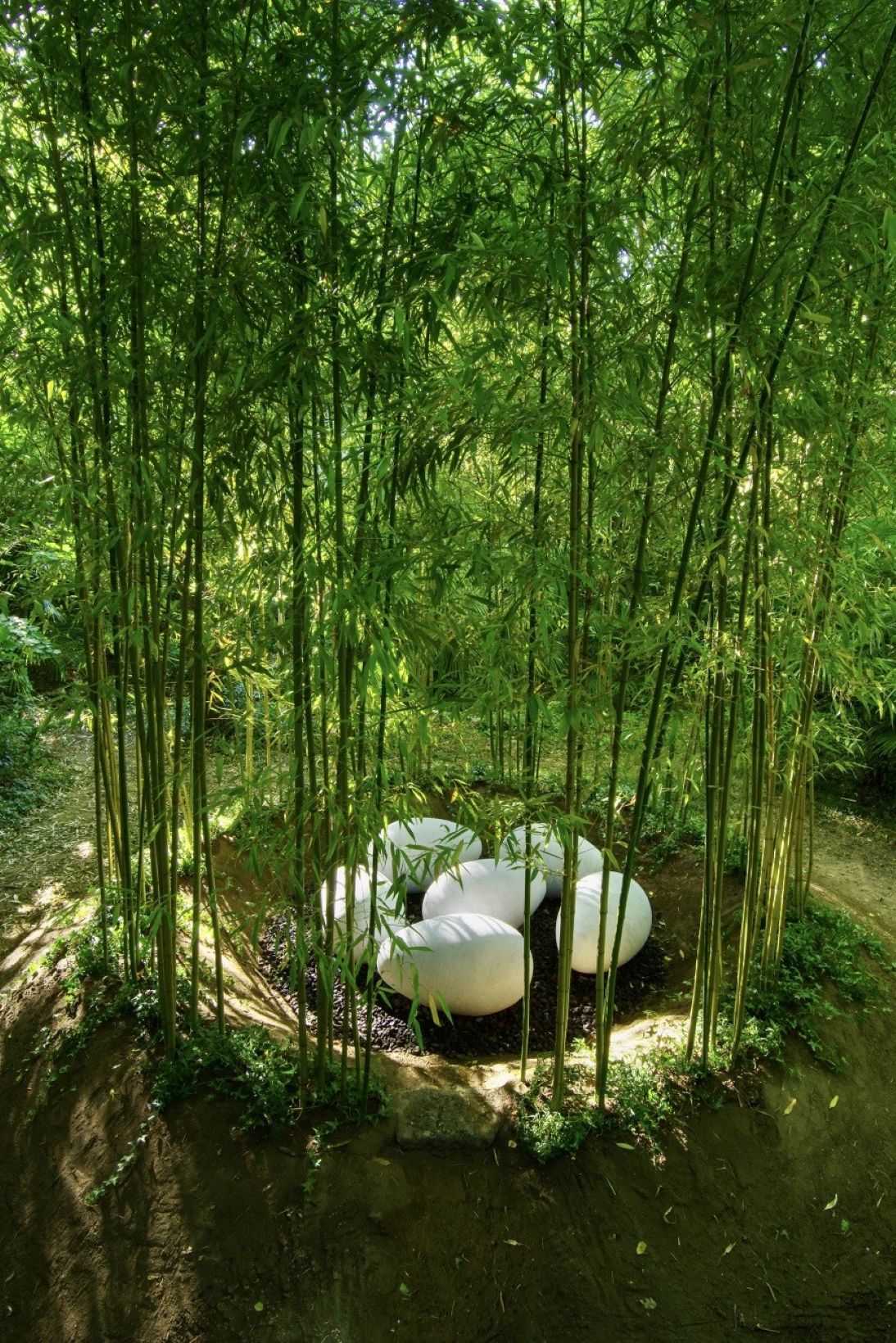As the post-Covid art market undergoes upheaval, galleries are reinventing their models. The simple white cube is over: enter hybrid formats, blending arty guesthouses and sculpture gardens in castles.
On July 6, contemporary artist Bernar Venet will install his furniture on the ground floor of Château de Lascours in Boisset-et-Gaujac, Gard. This historic medieval estate, once owned by the princes of Croÿ, was purchased in 2014 by Parisian gallerist Pierre-Alain Challier, a native of the region, and Montpellier-based auctioneer Bertrand de Latour to be transformed into a contemporary art center.
The constantly evolving market is forcing us to adapt quickly to the new habits of collectors and visitors
Loïc Bénétière, co-founder of the Ceysson & Bénétière art gallery in Saint-Etienne
“We host artists for residencies and exhibitions,” explains Challier, “in the heart of a 70-hectare park. Land art pieces by Nils-Udo or Jean-Pierre Formica and sculptures by Parvine Curie have already been installed on the site, which is currently being restored, along with rehabilitation of the historic buildings.”


Concerts and events allow the gallerist to connect with a significant local audience from Nîmes, Uzès, Arles, or Avignon and to lure collectors out of Paris to enjoy new experiences. “At exhibitions, I host dinners, concerts, book launches… it's a whole experience!” Today, Château de Lascours stands as a major cultural hub in Occitania, combining historical heritage, contemporary art, and environmental engagement.
Newsletters
Cet article vous plaît ?
Inscrivez-vous à nos newsletters pour recevoir les dernières publications et analyses selon nos 4 thématiques:
A new audience of visitors wants a complete experience
Pierre-Alain Challier, co-owner of Château de Lascours
“Society is changing, and contemporary art is a catalyst and harbinger of that future. It’s only natural that galleries follow suit,” says Challier. “Access to art has continued to broaden, both from public institutions and private initiatives. A new audience wants a full experience. Moving the gallery into new spaces and offering alternative forms of hospitality has always been my model. To preserve artworks, give artists space to create, and welcome collectors differently, the Maeght Gallery—transformed into a foundation in the 1960s—remains an ideal.”
A Broader Artistic Experience and Keeping Collectors Engaged
Pierre-Alain Challier, who created the Artcurial Café concept 20 years ago, isn’t the only one responding to the saturation of the traditional white cube model by transforming galleries into living spaces.
One of the more recent players in this increasingly popular scene is Domaine de Panéry, located west in Pouzilhac, between Tavel and Uzès. Despite being open for just a few years, this property owned by Olivier Ginon (CEO of GL Event, an event industry giant) is recognized for seamlessly integrating contemporary art into its wine-making facilities.
Galerie Ceysson & Bénétière, which began in Saint-Étienne with a space including a Michelin-starred restaurant and bookstore, regularly organizes exhibitions at Panéry, showcasing works by internationally renowned artists like Claude Viallat and Frank Stella.
Pour continuer à lire cet article, abonnez-vous maintenant
CHF 10.- par mois / CHF 99.- par année
- Accès illimité à tous les contenus payants
- Des analyses approfondies sur l'industrie du luxe que vous ne trouverez nulle part ailleurs.
- Des études et rapports sur les principaux défis à venir ainsi que leur décryptage.
- Des articles académiques élaborés par des professeurs et des doctorants membres du Swiss Center for Luxury Research, ainsi qu’un certain nombre d’universités à l’étranger.
- Des événements réservés aux membres pour enrichir vos connaissances et votre réseau.
Partager l'article
Continuez votre lecture
Latin America: the Wealthy Stand Out in Art Patronage
Amidst widespread economic, political, and social crises in Latin America, the continent is home to a record number of millionaires and billionaires. In this climate of inequality, some notable business tycoons are putting their fortunes to good use, betting on culture as a means to repair what can be fixed.
When the art market ventures off-piste
Over the past few years, the art world has been witnessing the launching of open-air art fairs throughout the world. Formerly focused on street art or emerging artists who did not find their audience in established circuits, they are now drawing a growing number of connoisseurs and collectors, eager to discover the works of renowned artists in extraordinary sceneries.
By Samia Tawil
Newsletters
Cet article vous plaît ?
Inscrivez-vous à nos newsletters pour recevoir les dernières publications et analyses selon nos 4 thématiques: